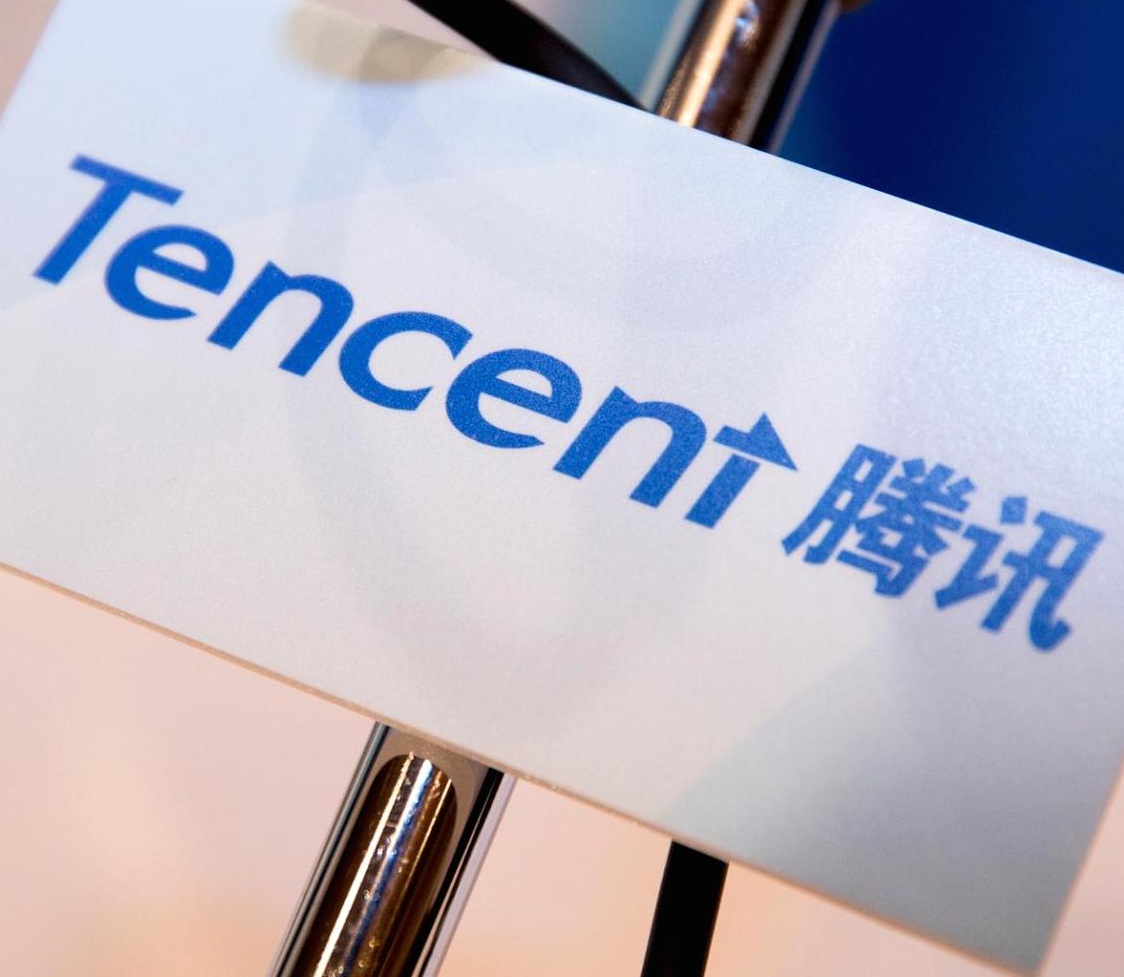Tencent, the rising Chinese Investment Holding Conglomerate
Tencent provides media, entertainment, payment systems, online advertising services, and internet and mobile phone value-added services internationally. Tencent’s unique, diversified platforms create an ecosystem that links social media, games, media, and messaging. At a market capitalization of $494 billion, Tencent is the fourth most valuable internet company in the world and on the top ten for most valuable companies overall in the world, as of Dec 2017. Tencent also has a diversified its revenue stream from fees, traffic, transactions, among others.


by Alice Zheng, Catarina Levita Schallenbach and Ria Gabrielle Lim
Tencent, a Chinese holding company, was founded in 1988 by Ma Huateng, Zhang Zhidong, Xu Chenye, Chen Yidan, and Zeng Liqing. Huateng currently serves as the Chairman and CEO while Chenye currently serves as CIO (1). Tencent provides media, entertainment, payment systems, online advertising services, and internet and mobile phone value-added services internationally. Tencent’s unique, diversified platforms create an ecosystem that links social media, games, media, and messaging. At a market capitalization of $494 billion, Tencent is the fourth most valuable internet company in the world and on the top ten for most valuable companies overall in the world, as of Dec 2017. Tencent also has a diversified its revenue stream from fees, traffic, transactions, among others.
Tencent’s industry, Internet Content & Information, is expected to expand in the near future, including its online gaming business, which has established a strong gaming pipeline to drive revenue growth. Tencent’s online payment business is expected to grow as well due to future expansion of its user base beyond China and to evolving opportunities in internet finance globally.
An external factor that has contributed to the rise of Tencent is China’s market and regulation of internet technology companies. China is the first middle-income economy to join the high income countries among the top 25 of the Global Innovation Index (#22) (2). This Index uses 81 indicators, ranging from political environment to education to business sophistication. Apart from being the most populous country in the world, China has a large population of working age adults, which presents a large domestic market. China also benefits from its focus on research and development investment and plans such as “Internet Plus”, which aims to couple the power of internet with other fields, such as finance and medicine. In fact, the country’s digital economy is growing so fast that it has exceeded the US in retail e-commerce transaction value and mobile payments as of 2016.
Other key success factors for Tencent, include a protected environment, innovation, collaborative cooperation, and strong leadership. China has a protected environment with strong government censorship on the dissemination of information, which helps Tencent, as many of its major competitors—most notably, Facebook—are blocked in the country. Furthermore, China also launched the “Made in China 2025” plan, which aims to localize the entire supply chain of many industries. In terms of innovation, Tencent is ranked as the 48th most innovative company in the world, and the company’s rise highlights the concept of micro innovation; taking a proven concept (ex.g. Communication) and adjusting it to the Chinese market (e.g., with WeChat). A unique aspect of Tencent’s environment is the collaborative cooperation between and against companies in China, for example, Tencent and Baidu created a joint venture involving e-commerce against e-commerce powerhouse Alibaba. Tencent has also collaborated with Alibaba on Didi Chuxing against American company Uber. Lastly, Tencent has strong leadership; four of the five aforementioned founders of Tencent have a technical background, which honed the company’s focus on positive user experiences. The fifth founder has experience in government relations, which is crucial in a country like China. Overall, their management team has significant experience both in China and abroad.
Tencent’s strategy thus far entails growing WeChat domestically, internationalization, and various Venture Capital investments. WeChat -Tencent’s communications app- has prioritized the ecosystem in mainland China, where its primary users are located. Tencent has also been aggressively acquiring gaming companies abroad, as well as developing patents. Further, it has been using venture capital investments to gain further opportunities to monetize as well as to position itself as the leader in the gaming industry. In addition to benefiting the company, these investments have increased the entrepreneurial mindset in China.
Despite a solid and successful growth strategy, Tencent still faces several challenges when developing strategies for WeChat and the gaming business, for US market products.
WeChat is very different from Facebook in the sense that it provides a huge number of services. Facebook is actually copying a lot of WeChat’s services and incorporating these in its app. One important and revenue making service is mobile payment. WeChat has successfully changed the way money is handled in China. Now, Facebook has recently launched its own payment system. The main difference is developed countries are more hesitant to use mobile payment as compared to emerging markets. WeChat has an impressive market share in China and at least 13 other countries, which means many customizations continue to be necessary. For instance, language translation, is already a challenge each time an improvement is done on the app/system. WeChat also faces challenges regarding censorship in China and guaranteeing data security in other countries.
For the gaming business, Tencent’s game console is seeking to gain market traction in China. For several years, game consolse in China were banned, which made PC and mobile games emerge. These games have the concept of “free-to-play,” different from the game console that charges for each game purchased. However, China is still developing its internet infrastructure and the capability of supporting games that require a significant amount of internet usage.
In the US market, Tencent would face fierce competition with already established Western products. The challenge here is to convince consumers to move from familiar products and companies, towards an unknown Chinese company which has successful products in Asia.
After reviewing the challenges, the class discussed its perceptions around the “first movers” competition. To expand beyond Asia, Tencent would have to compete and gain the market from first movers—i.e. – companies that “arrived first” and already gained the market, such as Facebook, WhatsApp, Venmo, etc. A possible solution is the idea of starting in the new market with a business that is more open to newcomers and then expand Tencent’s platform from this point.
The importance of Tencent’s management team to understand local customers and laws and customize its products to their needs is also an important topic to discuss. For instance, in India companies are required to have a specific license from the government to have a payment business, and Indians prefer to use cash instead of credit cards or online payments – credit/debit cards in India are used mostly to withdraw cash from ATMs- (3). In this environment, how could Tencent establish its booming payment business?
Another suitable solution would be investing in the brand’s growth outside Asia, as the company is not very well known outside the continent. Tencent is a Chinese company, and its dependence and proximity to the Chinese government may be a source of uncertainty among foreigner customers regarding data security. Also, Tencent’s origin is connected with a communist government, which will be hard to accept in many countries around the world. On the other hand, building the company brand and making the business known would attract more talent from other nations, which could contribute to Tencent having a diverse workforce, which is more capable of understanding the local market needs.
For the main discussion, some additional information was provided. Other than investing in gaming companies, Tencent also acquired stakes in Flipkart in India and 5% share in Tesla for US$ 1.85 billion. It has also partnered with sporting leagues such as NFL and NBA to obtain exclusive rights in China. This kind of diversity increases Tencent’s power and strength in the Chinese market.
Finally, it is possible to say that Tencent is having a great success in Asia, but their expansion to other continents is still a challenge for them. Understanding the consumers in different countries is a key issue to be able to enter new markets and compete with the big brands that are already established. Lastly, their wide range of services has allowed them to gather a lot of data, which can create numerous business opportunities for them in the future.
(1) Tencent Presentation in class 9/18/2017
(2) https://www.globalinnovationindex.org/
(3) Arakali, H. (2015, June 25). India, Where Cash Is King, Poised For Mobile-Payments Revolution As Internet Giants Alibaba, Amazon Move In. Retrieved September 23, 2017, from http://www.ibtimes.com/india-where-cash-king-poised-mobile-payments-revolution-internet-giants-alibaba-197924 9
